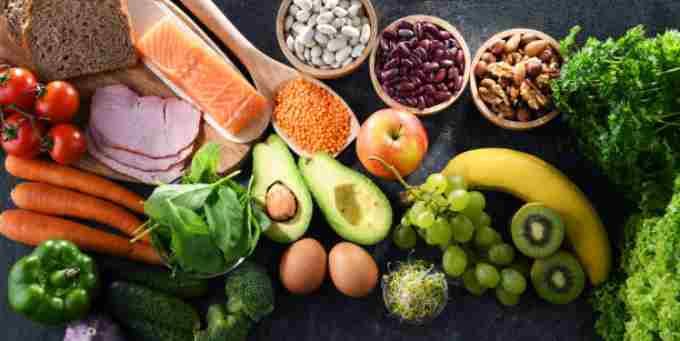If you’ve ever been confused by the myriad of healthy eating tips out there, you’re not alone. For every nutrition expert who tells you to eat this or that, there’s another who says the opposite.
However, healthy eating doesn’t have to be complicated. Here are some simple steps to help you get started:.
1. Eat a variety of foods

The food we eat provides energy and helps us stay healthy. Experts worldwide recommend a balanced diet that includes foods from all the main groups – starchy carbohydrates, fruit and veg, dairy or dairy alternatives, protein and fats.
Some people worry that eating healthfully will be boring and bland, but healthy foods can have plenty of flavor. Try cooking with spices and herbs to add interest to meals. At restaurants, choose entrees that are grilled, baked or broiled rather than fried and opt for salads and vegetables instead of high-calorie sides.
If you find it difficult to change your habits, focus on one small step at a time. For example, if you normally have whole milk with your cereal, switch to 1%. Over time, make more changes until you are eating healthily, sneak a peek here.
2. Eat at regular times
It may seem counterintuitive to eat small meals more frequently, but the body needs to be fed regularly. If the stomach remains empty for too long, it produces hydrochloric acid, which can erode the walls of the stomach and lead to ulcers.
Whether you’re running from meeting to meeting or are just busy, preparing and carrying healthy snacks will help prevent hunger. Make meals on the weekends and store them in containers that can be eaten at work, or purchase non-perishable items like cereal bars, yogurt, ready-to-drink shakes, protein bars, fruit, or jerky.
Never shop hungry. If your stomach is rumbling loud enough to be heard in the next aisle, chances are you’ll buy something you don’t really need. Instead, try to eat a healthy snack (like an apple or a handful of nuts) before heading to the grocery store.
3. Eat smaller meals more often

Eating several small meals throughout the day may help you manage your weight and improve metabolic health. But it’s not a one-size-fits-all recommendation, and there are conflicting results from recent intervention studies.
When you eat smaller meals more often, it’s important to make sure each meal is packed with nutrient-rich foods. This will give you the energy you need to get through your day and perform at your best.
Additionally, if you have gastrointestinal issues, small frequent meals can be easier on your stomach than three large meals. However, make sure to talk with your doctor or dietitian before making any changes to your eating habits.
4. Eat snacks that are healthy
It’s important to have healthy snacks available. Without them, you might end up filling your stomach with not-so-healthy foods such as sugar highs and lows, prepackaged processed food and even too much salt.
Make it a habit to keep healthy snacks in visible and easy-to-eat places at home and work. Store fruits in a bowl on the kitchen counter, have veggies cut and ready to go in the fridge or bring them in from the office in small batches with a plastic container for easy storage.
Try to choose snacks that combine light food with a dose of protein or healthy fats. For example, celery sticks and peanut butter (with raisins, if you want to recreate that fun “ants on a log” snack) or apples with almond butter.
5. Drink water
Water is essential to health. It provides a balance of body fluids, keeps skin healthy and helps maintain normal bowel function. Most people should drink about eight glasses a day. However, this recommendation can vary depending on climate, activity level, and whether you are sick or have a medical condition.
Summary
The good news is that there are a lot of ways to get your water in—including drinking water with lemon, adding fruit or 100 percent fruit juices to your diet, and eating lots of vegetables. It is also important to avoid beverages with added sugar. This can help you control calories and avoid the health risks associated with excess added sugar, including weight gain, heart disease and diabetes. It’s also a good idea to reduce your sodium intake.




